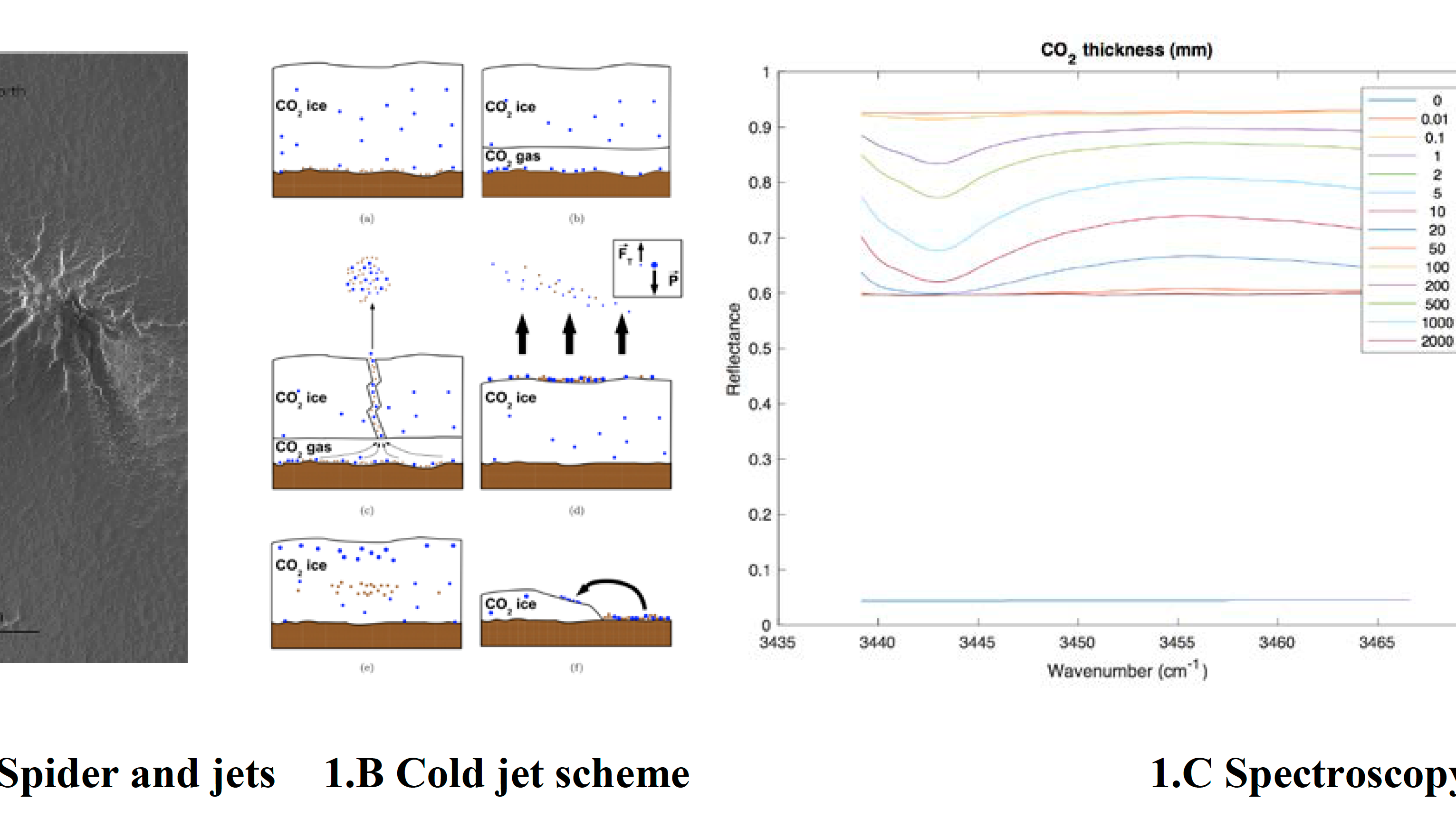The research program focuses on the study of the icy surfaces of the Solar System with a focus on Mars and the icy satellites. On Mars, volatiles (CO2 and H2O) are present seasonally in the Polar Regions but also at the equator during cool nights. Water ice is a predominant component on the moons of giant planets (e.g. Europa, Ganymede, Callisto, Enceladus ...), along with impurities whose exogenic or endogenic origin is yet to be determined. These surfaces are the seat of many enigmatic activities connecting the deep interior and the sub-surface to the surface, as evidenced by the detection of geysers on Enceladus and Europa, or the existence of Martian gullies. A pre-biotic chemistry could develop in these environments. This project will focus on the quantitative spectroscopic analysis of volatiles to determine the surface physical properties such as the presence and abundance of chemical compounds, mixing mode, amount of impurities, grain size, and roughness. This project is based on the analysis of available ExoMars / TGO data for Mars, and revisit existing Galileo data with new techniques for the icy moons of the outer Solar System (Europa, Ganymede, Callisto) in view of a better characterization of targets for the JUICE mission.

